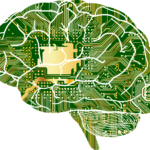Main Abilites Of The Human Brain

In this article we want to enlight some main abilities of the human brain and how they help to challenge & maintain through life’s complexities.
Introduction
The human brain is a fascinating and complex organ that plays a vital role in our everyday lives. It is the control center of our body, responsible for regulating our thoughts, emotions, movements, and bodily functions.
Made up of approximately 100 billion neurons, the brain is constantly processing and transmitting information through electrical and chemical signals.
It is divided into different regions, each with its own specific functions. The frontal lobe, for example, is responsible for decision-making and problem-solving, while the temporal lobe is involved in memory and language.
The brain is also divided into two hemispheres. The left side is typically associated with logical and analytical thinking while the right side is associated with creativity and emotions.
What makes the brain even more remarkable is its ability to adapt and change throughout our lives. This is known as plasticity, and allows the brain to form new connections and reorganize itself in response to new experiences and learning.
However, with this complexity also comes vulnerability. The brain is susceptible to various diseases and disorders such as Alzheimer’s, Parkinson’s, and depression.
Therefore, it is crucial to take care of our brain health by engaging in activities that stimulate the brain. For example such as exercise, puzzles, and learning new skills.
Main Abilities of The Human Brain
Cognition and Intelligence
The human brain is unparalleled in its ability to think complex thoughts, enabling highly advanced functions such as planning, strategizing, and abstract thinking. Examples of these abilities include problem-solving, argumentation, and decision-making.
Memory
The brain’s ability to self-organize facilitates lifelong learning and skill development. We learn from new experiences and adapt to changing environments. This process is referred to as plasticity.
Learning, Adaptibility and Emotional Processing
The brain plays a crucial role in processing and regulating emotions. By allowing us to experience and express a variety of feelings, it contributes to social interactions and relationships.
Motor Skills
We are capable of performing a variety of physical activities because the brain controls both voluntary and involuntary movements. Examples include fine motor skills like writing and gross motor skills like walking or running.
Language and Communication
Dedicated regions for language processing enable complex linguistic abilities such as speech production, comprehension, and even the interpretation of written and spoken language.
Perception and Sensory Processing
The brain processes sensory information, allowing us to perceive and understand the world.
Creativity and Imagination
The unique ability of the brain for creative thinking and imagination enables the generation of new ideas, artistic expression, and the creation of possibilities beyond current reality.
Social Interaction and Empathy
The brain has regions that promote social cognition and empathy. This allows us to understand the perspectives and emotions of others, consequently fostering social understanding and collaboration.
Consciousness and Self-Awareness
The human brain is said to possess consciousness. Individuals/humans are granted a sense of identity and introspection. We have awareness of our actions and thoughts.
Main Abilities of the Human Brain – Summary
The human brain is a remarkable, versatile, and adaptable organ. It allows for adaptation to various environments, solving complex problems, and engaging in a broad range of intellectual, emotional, and social experiences.
It is essential to keep your brain challenged in different categories for maintaining main abilities of the human brain in all aspects of life and to be able to navigate through world’s complexities.
Brain health should not be underestimated. Since the brain is your command center of the human body you need to ensure it is provided with all neccessary main needs to contribute an overall well-being.
Therefore researchers created 6 pillars of brain health which are interconnected components to human brain health. Definitions vary slightly but in common brain health is set up to six main needs.
- Physical Exercise
- Food and Nutrition
- Manage Stress
- Sleep and Relaxation
- Mental Fitness
- Social Interaction